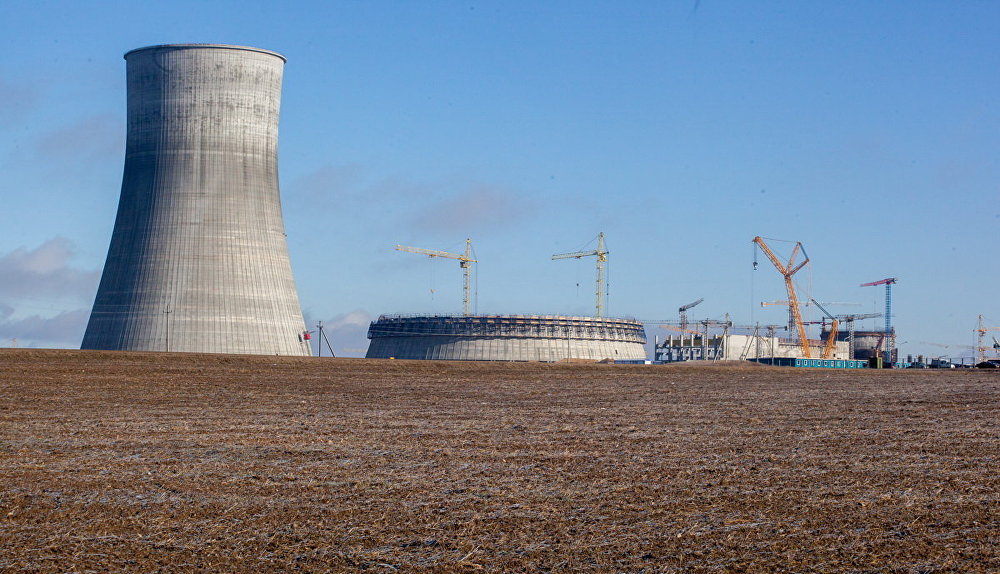Accidents at nuclear power plants can release massive amounts of radioactive materials that are unimpeded by national borders as they spread with the wind. This means that nations have a responsibility that extends beyond their borders to neighboring nations to manage nuclear power plants responsibly. When a nuclear power plant might break down and pose a threat to other nations, those other nations have a right to exert pressure to have that power plant shut down. There is a debate over just such a possibility raging in eastern Europe right now with respect to a power plant that is still under construction.
Construction of a Russian nuclear reactor in the nation of Belarus is currently underway. The construction site is at Astravets which is a hundred miles from the Belarus capital of Minsk but only twenty miles from the Lithuanian capital of Vilnius. The new reactor will be operated by a joint venture between Russia and Belarus.
Lithuanian critics of the new power reactor say that Russia is intent on increasing its influence in the European Union energy market for political reasons and statements from Russian media support that claim. Russia has been guilty of threatening to cut off fuel supplies to European nations during political disputes in the past.
The critics have also expressed concern that Belarus is being irresponsible and failing to use proper procedures in the construction of the reactor. There have been six serious accidents during the construction of the reactor and Belarus authorities only admitted that these accidents occurred after the accidents were reported in the independent media. A huge reactor pressure vessel was dropped six feet but the Russian construction company claimed that there was no sign of damage to the vessel. Two people also died in other accidents.
When the Chernobyl nuclear accident occurred in nearby Ukraine in April of 1986, twenty percent of Belarus was eventually contaminated with radioactive fallout from the accident. The people in the area were not warned about the accident for several days while they continued their regular routines and experienced more radiation exposure than was necessary. People in this part of eastern Europe are understandably worried about nuclear reactors, especially when there are so many unreported accidents in their construction. If there was a problem at the new Belarus reactor, would the people of Lithuania be told immediately or would the authorities try to hide it?
Lithuanian authorities claim that the Belarus authorities were not concerned about existing pollution which was quite high near the reactor site on the Lithuanian side of the border. Had this pollution been taken into account, the site would have been less acceptable and may have been rejected by the Belarusian planners. The Lithuanians requested the creation of an independent construction commission with representatives from both Belarus and Lithuania but Belarus rejected the suggestion.
The Espoo Convention which Belarus signed requires that countries supply neighboring countries with trans-boundary environmental impact statements for major projects translated into neighbor's language. Belarus sent Lithuania an EIS which was translated with Google translation software into Lithuanian. It was incomprehensible.
Rolandas Kačinskas, Political Director of the Lithuanian Ministry of Foreign Affairs said, “What we want is for [Belarus] to stop the construction of the reactor,” said Kačinskas. “It’s not that we are against nuclear power, we are against the irresponsible use of it. At the least we want more access and more accountability. We want assurances that if there are problems we will be the first to know. Our position is clear: Since Belarus has not fulfilled major international commitments – has not accomplished IAEA’s Site and External Events Design Review Service (SEED); has not undertaken comprehensive risk and safety assessment tests; has not established an international commission of experts for an in-depth analysis of Astravets case; and therefore it poses extreme safety threat for the whole region and the European Union – Lithuania demands that Belarus suspends the construction works at the Astravets site.”
Astravets reactor construction site:
